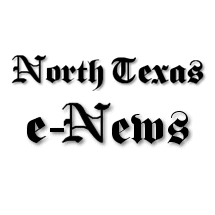Education, freedom, independence, and the pursuit of happiness: a dream beyond the USA
Cryptopolytech Public Press Pass
Title: Education, freedom, independence, and the pursuit of happiness: a dream beyond the USA
200000048 – World Newser
•| World |•| Online |•| Media |•| Outlet |
Education, freedom, independence, and the pursuit of happiness: a dream beyond the USA
In the African studies history course that I taught, I emphasized that the great majority of Africans who resisted European colonialism with force, as well as those who became leaders after most nations were granted independent peacefully in the 1960s– they had graduated from schools founded by missionaries. Most missionaries were Roman Catholics or Protestants from Europe and the USA?many from the same nation that was colonizing the area of Africa where they had missions.
In the country of my research, Gabon, the French built their fort in 1849*about the same time as the arrival of French Roman Catholic missionaries. When the indigenous groups started resisting peacefully, the French blamed the missionaries, who came from the USA in 1842, suggesting that these Protestants were spreading ?the spirit of 1776? in this west equatorial area of what was to be called the ?French Congo.? The US missionaries who had started a school in 1842, noted that the resistance was coming primarily from their students whose skills allowed them to read about the world they lived in, and share their ideas with their parents. Some of their instructors were Liberians who shared stories of their country?s history.
What most surprised the class was my shifting to the USA to look at the role that our first universities played. Most were founded by Christians who had fled persecution in Europe. The oldest was Harvard, founded in 1636 by Unitarians. The next was Yale in 1701, by Congregationalists; then Princeton by Presbyterians in 1746, and Brown by Baptists in 1764. The list goes on, but my point is that the graduates of these earliest universities initiated and boosted the ?spirit of 1776.? King George III is credited with calling the uprising in their colonies ?a Presbyterian revolt?! The battle of Princeton was in 1777.
Then I continued in my class with another part of U.S. history that had begun about 150 years before 1776–the brutal Atlantic Slave Trade, and how it affected the USA. The education of African slaves in the USA was illegal, even for some free Blacks. For slave owners, education of slaves was a grave threat. Ironically, some exceptions were made for religious institutions such as Sunday School in hopes that religion would make slaves more submissive. The opposite was often the case since both the Hebrew and Christian scriptures** can be interpreted to support liberation from tyranny at a time when Greek and Roman colonialism/imperialism prevailed in what today we call the Middle East.
Soon after the Civil War in the USA, dozens of Black Colleges and Universities were founded that would be called ?Historically Black Colleges and Universities? (HBCUs). Some were public and others founded by churches. This op-ed started in Africa and now we end in Africa by pointing out that the first Prime Minister and later President of Ghana*** was Dr. Kwame Nkrumah. He attended a Roman Catholic grade school in the Gold Coast and, at one point, considered becoming a Jesuit. He came to the USA in the 1930s to study at an HBCU that was founded before the Civil War, in 1854 ?Lincoln University in Pennsylvania. Segregation did not end until the 1960s, thus he had to attend an HBCU. He received his Batchelor?s degree in sociology and then a degree in theology from Lincoln?s seminary. On weekends he often visited Black churches in Philadelphia and in New York City.
From Africa in the mid-1800s, to the USA from the early 1600s, and back to Africa in the mid-1900s, education has played a key role in freedom, independence, and the pursuit of happiness!
*Many West African and European traders were already established in the Gabon estuary.
**Often referred to as the Old Testament and New Testament.
***The British colony of Gold Coast was among the first to become independent (in 1957) and called Ghana. Most colonies of England and of France were granted freedom in the early 1960s. President Nkrumah addressed the University College of Legon (now a northern suburb of the capitol, Accra) during the academic year 1960/1961. His presence at the university and his presentation underlined the importance of education at a time when other colonies were about to be free.
‘News of the Day’ content, as reported by public domain newswires.
Source Information (if available)
It appears the above article may have originally appeared on www.ntxe-news.com and has been shared elsewhere on the internet, repeatedly. News articles have become eerily similar to manufacturer descriptions.
We will happily entertain any content removal requests, simply reach out to us. In the interim, please perform due diligence and place any content you deem “privileged” behind a subscription and/or paywall.
First to share? If share image does not populate, please close the share box & re-open or reload page to load the image, Thanks!



